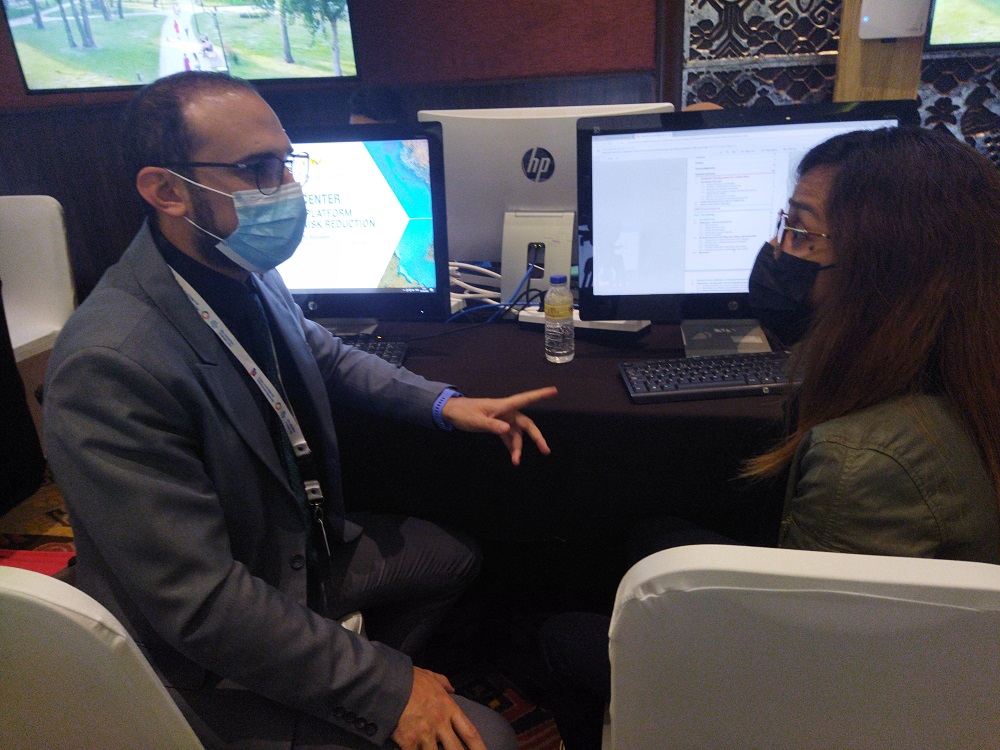Last updated on 30/11/2024
Last updated on juin 1, 2022
The 2022 Global Assessment Report on Disaster Risk Reduction was officially published by UNDRR. According to the report, since 2015, human losses in Africa and around the world have been reduced, while economic losses have multiplied.
Version francaise disponible ici
Losses and increased risk of disasters
The record is skeptical. The damage caused by the various natural disasters in the world has resulted in significant losses for all the countries of the world, especially in Africa. Economic losses have increased tenfold, although the number of fatalities has decreased since 2015, when the Sendai Framework was adopted. This has increased from $50 million to $70 million in 2019, according to the UNDRR’s 2022 Global Assessment Report on Disaster Risk Reduction (GAR).

This decrease in the loss of human life is due to the fact that people in countries around the world, especially in Africa, are more prepared for natural disasters, thanks to the existence of early warning systems, the establishment of risk management entities, financial resources for risk management and victims of natural disasters.
However, economic losses related to the destruction of infrastructure, financial expenditure, communication and other tools have multiplied.
The UNDRR is sounding the alarm because, according to the 2022 Global Assessment Report on Disaster Risk Reduction, disasters will continue to multiply over the next 10 years.


According to the INFORM Natural Disaster Risk Index, most of the countries facing high risk are those whose population lives below the poverty line living below the national poverty line. Of the top 20 countries with an INFORM risk index of 6.6 or higher, 90% are middle- and low-income countries, including African countries and some Asian countries. For these high-risk and high-poverty countries, the impact of disasters can lead to lower incomes and consumption, negatively affect well-being and cause major setbacks in human and economic development, with long-term consequences.
Strengthening prevention
One of the causes of major economic and human losses in African countries is mainly the lack of investment in prevention. Indeed, African countries do a lot of work on management of disasters, but not enough on disaster prevention. Yet, a budget is allocated to that.
“What’s not being done right now is the part about investing in prevention, and yet it’s one of the priorities of the Sendai framework. For example, for the African Union, they have a program of actions for the implementation of the Sendai framework, which aims, among other things, to measure how much countries spend on DRR, but our monitoring says that they have not done much. A study of 16 countries showed that they invested around 1% of the budget on reduction and prevention, hence an increase in damage. We need to change because countries in Africa are going to suffer a lot from climate change”,explained Roberto Schiano Lomoriello, Programme Management Officer at UNDRR in Africa, today in an exclusive interview with the Global Platform for Disaster Risk Reduction (GPDRR).
This lack of investment in prevention is also surprising, when we learn that African countries have reviewed more and more aid from technical and financial partners. As Harsen Nyambe, Director of Sustainable Development and Blue Economy at the African Union, explained yesterday at the press conference at the Bali Nusa Dua Convention Center in Indonesia.
The Director, however, reiterated Africa’s commitment to disaster risk reduction, and said that African countries have demonstrated their willingness to work closely with the UNDRR in achieving the SDGs and the Sendai Framework by 2030.
On the other hand, the member countries of the Indian Ocean Commission (IOC) have also demonstrated their willingness to collaborate. A workshop was held in this context last Tuesday at the Bali Nusa Dua Convention Center in Indonesia.
“On the preparation side, the small islands of the Indian Ocean are very active. Madagascar has set up a DRR platform that helps coordinate several actors, Mauritius has begun to give importance to the Sendai framework and is in mid-term review compared to the Sendai framework, and Seychelles as well”,argued Roberto Schiano Lomoriello.

Roberto Schiano Lomoriello, Programme Manager at UNDRR in Africa. cc: Book News Madagascar
Competition and poor coordination between different actors
There is also another major obstacle to disaster risk management. Indeed, there is competition and poor coordination between the various actors in the disaster sector. In Madagascar, this is particularly visible between the BNGRC, the CPGU and the various ministries responsible for managing these disasters.
“It takes consistency, sharing information, to work towards a common goal. It is also necessary to clarify the roles and functions of each entity”,underlines the manager.
In general, Africa is not the only continent that has not met the initial objectives of the Sendai framework. Many other countries have fallen behind, including the Covid-19 pandemic, climate change and the war in Ukraine since this year.
These challenges were discussed during the Global Platform for Disaster Risk Reduction, which began on the 23rd and will end tomorrow in Bali, Indonesia.

[…] night in the same Province. It was Ryan Reyes, a Filipino expatriateemployee of Ambatovy.The latest official figures released yesterday by the Operational Command Center (OCC) Covid-19showed that the Big […]